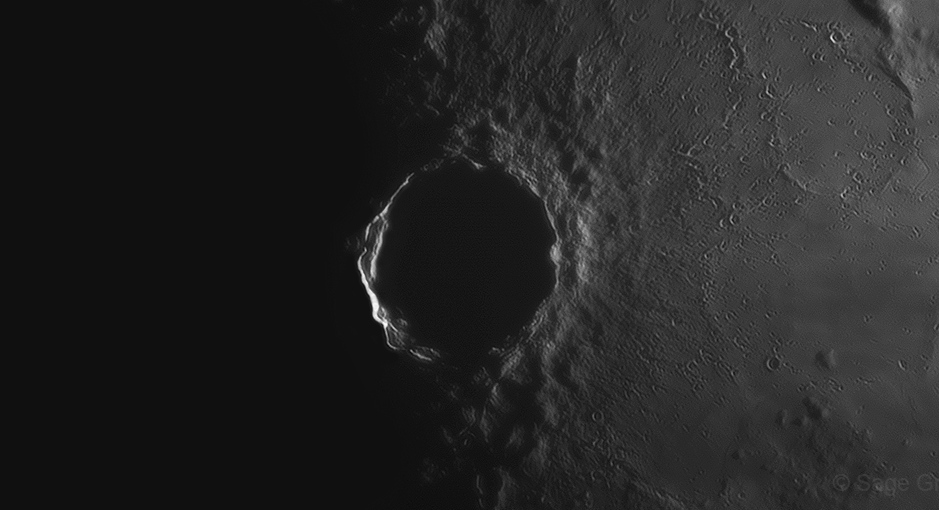2019 May 30

A prominent impact site anchored in the lunar Oceanus Procellarum, Copernicus crater is at the center of this telescopic portrait in light and shadow. Caught in stacked and sharpened video frames recorded on April 14 at 3:30am UTC, the lunar terminator, or boundary between night and day, cuts across the middle of the 93 kilometer diameter crater. Sunlight is just beginning to strike its tall western walls but doesn't yet shine on lower terrain nearby, briefly extending the crater's outline into the lunar nightside. At that moment standing at Copernicus crater you could watch the sunrise, an event that happens at Copernicus every 29.5 days. Of course that corresponds to a lunar month or a lunation, the time between consecutive Full Moons, as seen from planet Earth.
https://apod.nasa.gov/apod/

A prominent impact site anchored in the lunar Oceanus Procellarum, Copernicus crater is at the center of this telescopic portrait in light and shadow. Caught in stacked and sharpened video frames recorded on April 14 at 3:30am UTC, the lunar terminator, or boundary between night and day, cuts across the middle of the 93 kilometer diameter crater. Sunlight is just beginning to strike its tall western walls but doesn't yet shine on lower terrain nearby, briefly extending the crater's outline into the lunar nightside. At that moment standing at Copernicus crater you could watch the sunrise, an event that happens at Copernicus every 29.5 days. Of course that corresponds to a lunar month or a lunation, the time between consecutive Full Moons, as seen from planet Earth.
https://apod.nasa.gov/apod/










Δεν υπάρχουν σχόλια:
Δημοσίευση σχολίου